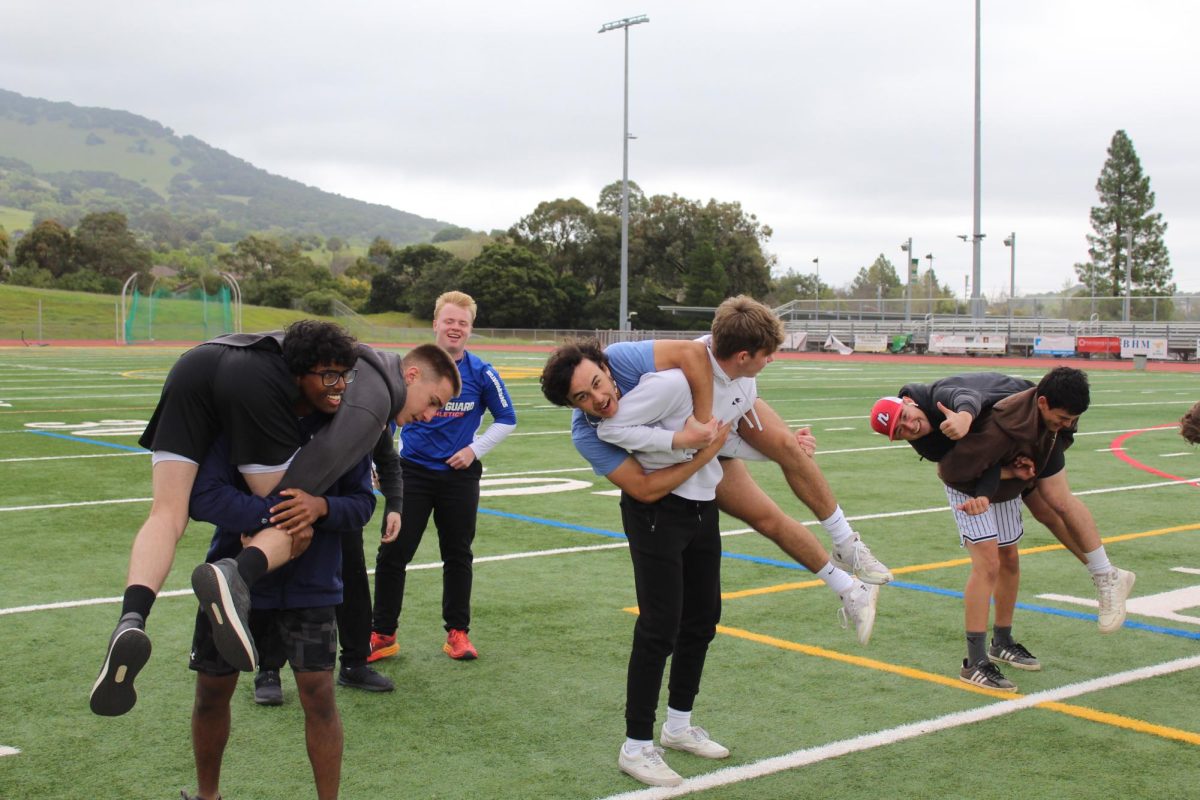All athletes have to start out somewhere. It takes time for an athlete to develop their skills, and they don’t do it by themselves.
Parents, friends, and more influence their performance, but most important is the influence of coaches.
When a person first picks up a bat, football, or lacrosse stick, the coach teaches them what to do with it. Coaches not only make the athletes better players, but mentally affect them as well.
Coaches have the opportunity to connect with their athletes, permitting them to build meaningful relationships in which they can help an athlete grow both as a competitor and as an individual.
Sophomore Ella Coopersmith has competed in pole vaulting since she was a freshman, and has been able to feel the effect of how a coach can change an athlete for the better.
There was no need for her to panic over feeling as though she needed to be perfect, giving her the chance to grow as an athlete.
Coaches giving opportunities for their athletes to evolve without judgement allows for them to grow in confidence.
“The coach setting his expectations low gave me more room to become more comfortable in the sport,” Coopersmith said. “Pole vaulting is a lot about not having fear, and not having the fear of not meeting his expectations was able to help me.”
Coaching is more than just about the sport. It’s about being a safe space for athletes when they are in need, allowing them to feel seen and valued as a person.
“My coach became a really big part of my freshman year of high school,” Coopersmith said. “I felt like he could understand other students’ views and was really there to just listen.” Coaches can also help athletes feel more included as an important part of the team.
“I felt really loved by the coach,” sophomore Avery Bishop said. “He made me feel like I was meant to be there.”
While Bishop has had positive experiences with coaches, she has also seen the negative impact a coach can have on an athlete. Not all coaches have the qualities that help their athletes thrive.
Rather than elevating them, harsh coaching can minimize an athlete’s self esteem, reflecting in their performance.
“I felt targeted when my coach was yelling at me,” Bishop said. “I just felt like I wasn’t really meant to be there at that moment. He made me feel not confident in what I was doing.”
Being yelled at and criticized by a coach can make an athlete feel insecure as a teammate and an individual. Actions like these from coaches can propel an athlete into a negative mindset about their future in the sport itself.
“He made me lose the love for the game,” Bishop said. “After a game I walked outside crying. I told my mom that I’m done with this sport, I never want to play again.”
Although Bishop had a negative experience with her coach, she still continues to play and enjoy sports.
Even on a winning team, a negative coach can produce a losing mindset. Sophomore Landry Hutchens has felt the sting of negativity in this case.
“Even after winning many games to start the season, when we lost our first game, our coach was super angry and made us run a bunch,” Hutchens said. “That killed the whole positive vibe of the team and made us feel like we weren’t doing good enough even though we had started off so well. It made us feel defeated and we ended up going on a bad losing streak to end the season because of the negativity after that game.”
If a student does have an issue with their coach, they can express that through the Athletic Director Tyler Peterson’s anonymous coaching evaluation that athletes have the opportunity to fill out after each season.
Coaches have a variety of impacts on athletes no matter who they are. What works for some might not work for others. Some coaching styles are inherently proactive in bringing up a team and the individuals who make it up.
A coach is more than someone who gives advice or words of encouragement, but someone who values and respects an athlete’s growth on and off the field.







































